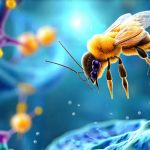Histamine is a fascinating molecule central to many bodily functions – from immunity and digestion to sleep-wake cycles and even neurotransmission. It’s often perceived negatively due to its role in allergic reactions, but it’s vital for life. The problem arises when histamine levels become unbalanced or the body struggles to degrade histamine efficiently, leading to a constellation of symptoms that can significantly impact quality of life. These aren’t always classic allergy-like responses; they can manifest as headaches, digestive issues, skin problems like hives or eczema, fatigue, and even anxiety. Understanding this complex system is the first step toward finding relief, and increasingly, people are exploring natural approaches to manage histamine reactions rather than relying solely on anti-histamines which often come with their own side effects.
The key isn’t necessarily reducing histamine production entirely – that would be detrimental – but rather supporting the body’s natural processes for regulating it. This involves addressing several factors: minimizing histamine intake through diet, optimizing gut health to aid in histamine degradation, and bolstering enzyme systems involved in histamine metabolism. It’s important to note that histamine intolerance is a complex issue; what triggers one person may not affect another, making personalized strategies crucial. Furthermore, underlying conditions like mast cell activation syndrome (MCAS) can significantly contribute to higher histamine levels, potentially requiring more comprehensive medical evaluation and management. This article will explore some natural ways to ease histamine reactions, focusing on dietary adjustments, gut health support, and enzymatic assistance.
Dietary Strategies for Histamine Management
Diet plays a significant role in managing histamine reactions because many foods naturally contain high levels of histamine or can trigger its release within the body. It’s not always about avoiding everything; it’s about understanding how different foods affect you specifically. A low-histamine diet isn’t necessarily a long-term solution for everyone, but it can be incredibly helpful in identifying triggers and reducing symptom burden while other supportive strategies are implemented. The goal is to reduce the overall histamine load on your system, giving your body a chance to rebalance.
The challenge lies in the fact that histamine levels in food aren’t fixed – they increase with age, fermentation, and improper storage. Freshly prepared foods generally contain less histamine than leftovers or pre-packaged items. Some commonly high-histamine foods include fermented products (sauerkraut, yogurt, kombucha), aged cheeses, cured meats, alcohol (especially red wine and beer), vinegar-containing foods, spinach, eggplant, tomatoes, avocados, citrus fruits, and strawberries. Conversely, low-histamine options include most fresh vegetables (except those mentioned above), freshly cooked meat or poultry, rice, quinoa, and many herbal teas. It’s essential to experiment and keep a food diary to identify personal triggers because tolerance levels vary widely.
Beyond histamine content, some foods can act as mast cell activators, meaning they trigger the release of histamine from mast cells in the body, even if they don’t contain much histamine themselves. Common mast cell activators include citrus fruits, tomatoes, chocolate, and shellfish. Identifying and minimizing these triggers is equally important for managing histamine reactions. Additionally, DAO (diamine oxidase) is the primary enzyme responsible for breaking down histamine in the gut. Certain foods can inhibit DAO activity, further exacerbating symptoms. These include alcohol, energy drinks, green tea, and black tea. Understanding these nuances allows for a more targeted dietary approach to easing histamine reactions. You might also explore natural remedies to enhance enzyme production to help with this process.
Gut Health & Histamine Metabolism
A healthy gut microbiome is crucial for managing histamine levels because it plays a vital role in several aspects of histamine metabolism. First, the gut houses approximately 90% of the body’s DAO enzyme, meaning a compromised gut can significantly reduce histamine breakdown capacity. Second, an imbalanced gut microbiome (dysbiosis) can lead to increased intestinal permeability – often referred to as “leaky gut” – allowing more histamine and other inflammatory compounds to enter the bloodstream. Third, certain gut bacteria can actually produce histamine, contributing to overall levels within the body.
Restoring gut health involves a multi-faceted approach that includes dietary changes, probiotic supplementation (with caution – see below), and lifestyle modifications. Incorporating prebiotic-rich foods such as garlic, onions, asparagus, and bananas can feed beneficial gut bacteria, promoting a healthier microbiome. Avoiding processed foods, sugar, and artificial sweeteners is also essential, as these can disrupt the delicate balance of the gut ecosystem. Probiotic supplementation should be approached carefully because some probiotic strains can actually increase histamine production in certain individuals. Look for low-histamine probiotic formulas that contain strains known to support DAO activity, such as Lactobacillus rhamnosus and Bifidobacterium infantis. To further understand the complexities of digestion, consider reading about gentle ways to ease infant gas and belly pressure.
Addressing intestinal permeability is another crucial step. This can involve incorporating gut-healing nutrients like L-glutamine, zinc carnosine, and collagen into your diet or supplement regimen. Reducing stress levels and managing inflammation are also essential for restoring gut barrier function. Chronic stress increases intestinal permeability, making the gut more vulnerable to histamine absorption. A holistic approach that addresses all aspects of gut health is often the most effective way to ease histamine reactions. It can be helpful to look at food rotation methods to prevent pancreatic overload as part of your overall plan.
Enzymatic Support & Natural Remedies
While dietary adjustments and gut health support form the foundation of histamine management, enzymatic support can provide additional relief. As mentioned earlier, DAO is the key enzyme responsible for breaking down histamine in the digestive tract. Supplementing with an enteric-coated DAO enzyme before meals containing histamine-rich foods can help prevent histamine from being absorbed into the bloodstream, thereby reducing symptoms. It’s important to choose a high-quality supplement from a reputable brand and follow dosage instructions carefully.
Beyond DAO supplementation, several natural remedies may offer symptomatic relief. Quercetin is a potent antioxidant found in many fruits and vegetables (onions, apples, berries) that can help stabilize mast cells, reducing histamine release. However, quercetin absorption can be low, so pairing it with bromelain – an enzyme found in pineapple – can enhance its bioavailability. Vitamin C also acts as a natural antihistamine and supports adrenal function, which can become depleted during chronic histamine reactions. Magnesium is another essential nutrient that plays a role in DAO production and helps regulate the nervous system, reducing stress and anxiety often associated with histamine intolerance. For broader support, explore natural ways to support enzyme function daily.
Finally, consider incorporating lifestyle practices that support overall health and reduce histamine burden. Regular exercise improves circulation and reduces inflammation. Adequate sleep allows the body to repair and regenerate. Stress management techniques like meditation, yoga, or deep breathing exercises can help lower cortisol levels, which contribute to mast cell activation. It’s crucial to remember that these natural remedies are not a substitute for medical evaluation. If you suspect histamine intolerance or MCAS, consult with a healthcare professional to rule out underlying conditions and develop a personalized management plan. Learning how to stimulate enzyme release with bitter herbs may also be beneficial. Additionally, understanding how to ease the pressure of daily bowel expectations can contribute to overall wellbeing and stress reduction. Finally, consider exploring natural ways to improve gallbladder function daily.


















